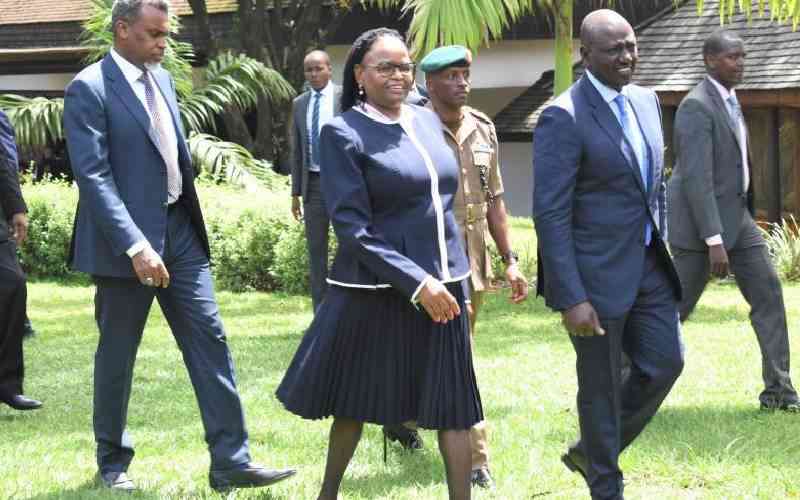×
The Standard e-Paper
Home To Bold Columnists

Chief Justice Martha Koome has dismissed claims that the Judiciary entered into a pact with the Executive on the affordable housing levy.
While insisting that President William Ruto's remarks were 'taken out of context', Koome argued that the Judiciary was sitting as an arbiter and her meeting with the president had nothing to do with the controversial levy.